Are Airbnb-type rentals a boon or a threat for tenants under rent control?
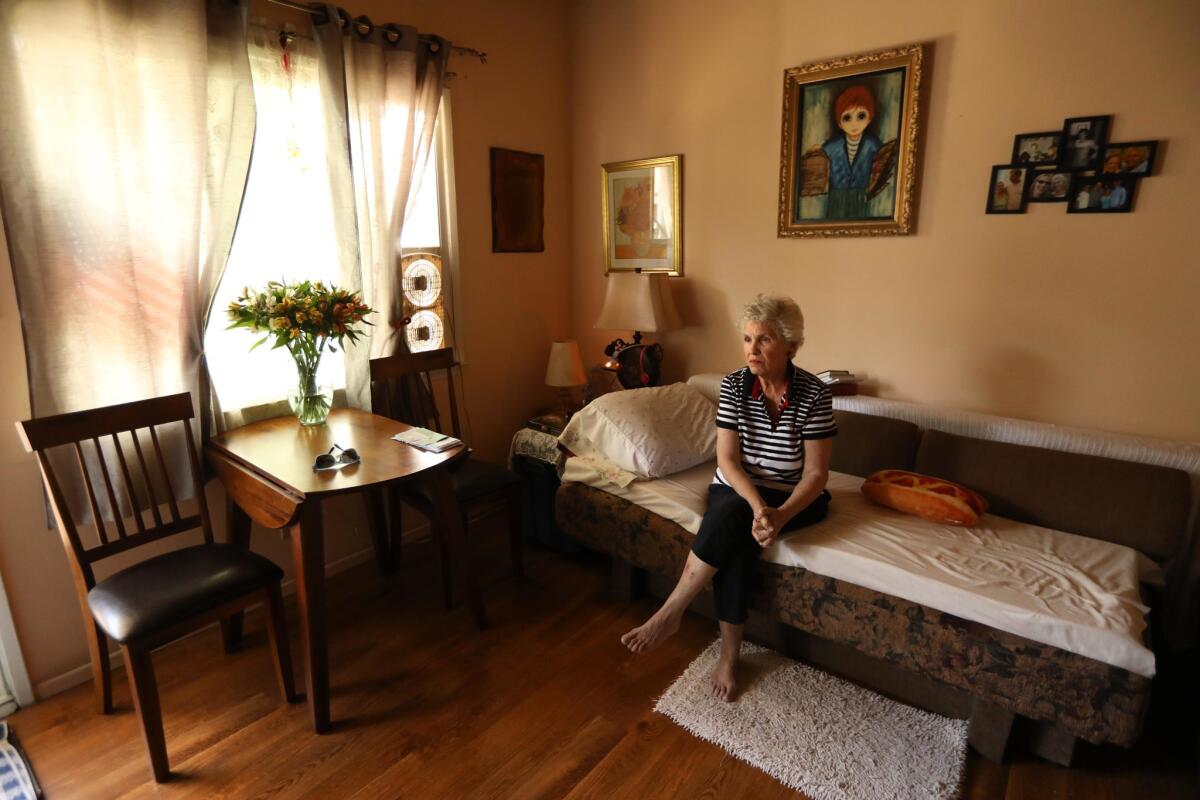
For years, Los Angeles leaders have wrestled with how to regulate the renting out of homes for short stays, a practice popularized through websites like Airbnb.
Until recently, there was little debate at City Hall about banning the practice in hundreds of thousands of rent-controlled apartments.
The goal, city staffers said, was “to protect this critically important housing stock from possible abuse.” Community activists agreed, saying a ban would prevent landlords from pushing out tenants to rent to a revolving door of travelers and turning their apartment buildings into “illegal hotels.”
But the Planning Commission, whose members are appointed by Mayor Eric Garcetti, recently recommended allowing such rentals in apartments covered by L.A.’s Rent Stabilization Ordinance, which limits how much rent can be increased annually for tenants. It would be unfair not to allow renters in those units to reap the benefits of Airbnb and similar platforms, commissioners said. Garcetti has endorsed the idea.
“All Angelenos should be able to benefit from the new economy — regardless of economic status,” Garcetti spokeswoman Anna Bahr said.
‘I’m just trying to survive’
That was welcome news for David Hunt, a 76-year-old renter in Del Rey, who has been offering up his bedroom to guests through Airbnb to make ends meet after his partner passed away. When travelers come to stay in his rent-controlled apartment, he bunks in the living room.
“I’m just trying to survive,” said Hunt, who works off and on as a tour guide and video editor. “The cost of living keeps growing and the salaries don’t go up. So we have to do something.”
But the idea has troubled some members of the City Council, which has been deliberating over regulations on renting out homes for short stays for more than three years. Councilman Mike Bonin called it a “baffling move” that would undermine the goal of protecting rental housing.
“There is too much potential for abuse,” Bonin said.
Tenant advocates also are skeptical it would provide economic equity. For poor families living in crowded conditions, “the idea that they’re ever going to have a spare room to rent out is a little bit ludicrous,” said Cynthia Strathmann, executive director of Strategic Actions for a Just Economy.
In Los Angeles, rent increases for tenants are generally limited in apartment buildings erected on or before Oct. 1, 1978, with more than 600,000 units across the city covered by the rules. There is no income limit on who can move in, and landlords can still raise rents as they wish when those units are vacant.
‘They’re making a hotel around me’
Tenant activists warn that gives landlords a financial incentive to push out renters from such buildings, especially if they can replace them with tourists willing to pay much more per night.
In Hollywood, Carol Thompson lamented that her neighbors have almost all been replaced by travelers staying just a few nights. At times, the 75-year-old said, she has stayed with her son to escape the racket from vacationers tromping around upstairs.
“You don’t know who’s coming or going,” said Thompson, who has lived at her rent-controlled Detroit Street building more than two decades. “They’re making a hotel around me.”
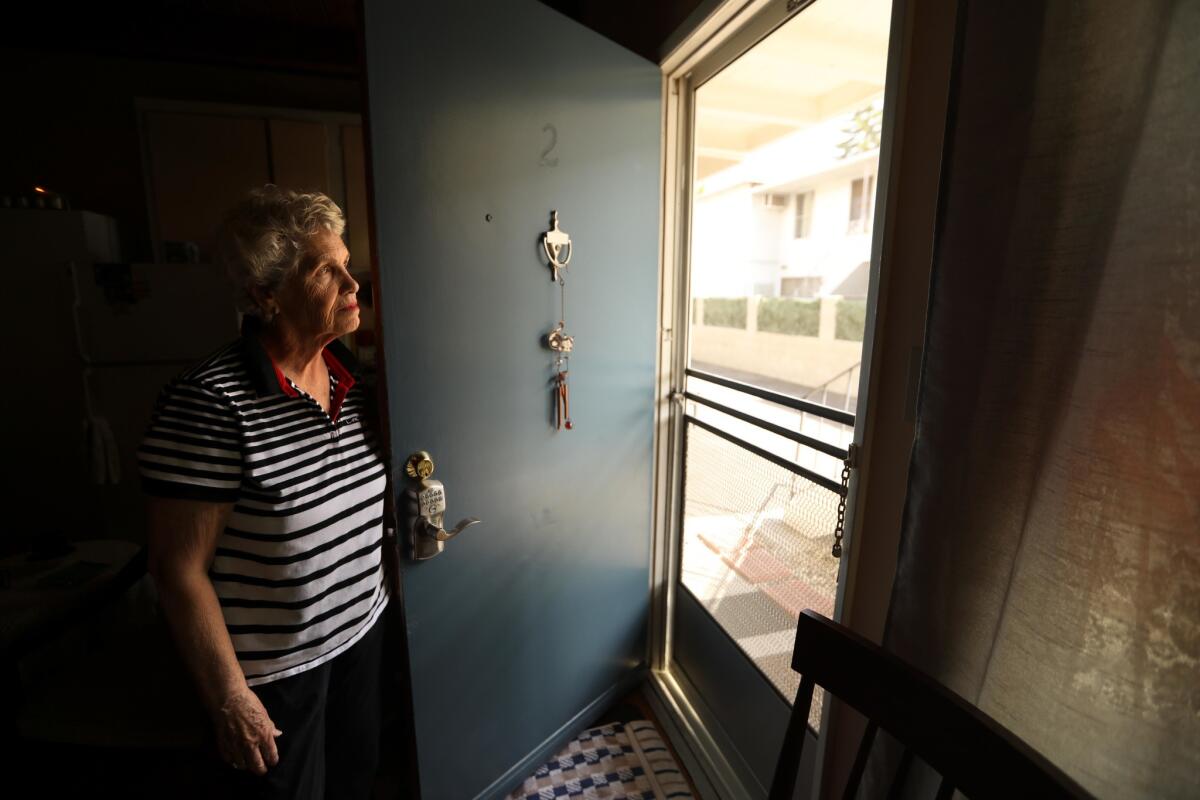
In July, she got a letter stating that her Section 8 lease, which is subsidized by the government, was being terminated because the landlord found it too difficult to deal with the government paperwork and inspections. If she wanted to stay, Thompson would need to cover all of the $982 rent herself — an increase of more than $700 a month for her.
“We knew this was coming. That he would find a way to get rid of her,” said her friend Steven Kent, who lives in the building next door. He has strung up a yellow banner that denounces the “illegal Airbnb hotel” and declares that “Good Tenants Were Forced Out for $$.”
Attorney Dennis Block, who represents building owner Ciscom Inc, said it was “absolutely false” that the landlord was trying to make way for short-term guests and that “no one was asking anyone to move.”
However, Block recently said that they were yanking the notice after learning that it was not allowed under city rules. Francisco Lim, listed in state records as president of Ciscom, could not be reached for comment.
120-night annual limit is considered
The rules being vetted at City Hall are intended to guard against apartment buildings being turned into hotels: Angelenos would be able to rent out only their own primary residence for short stays. Airbnb and its hosts have argued that that and other restrictions — including an annual cap of 120 nights in rent-controlled apartments — should be enough to prevent abuses.
The plan “safeguards against landlords and real estate speculators who illegally evict tenants and abuse platforms like ours in search of a quick buck,” Airbnb spokeswoman Connie Llanos said.
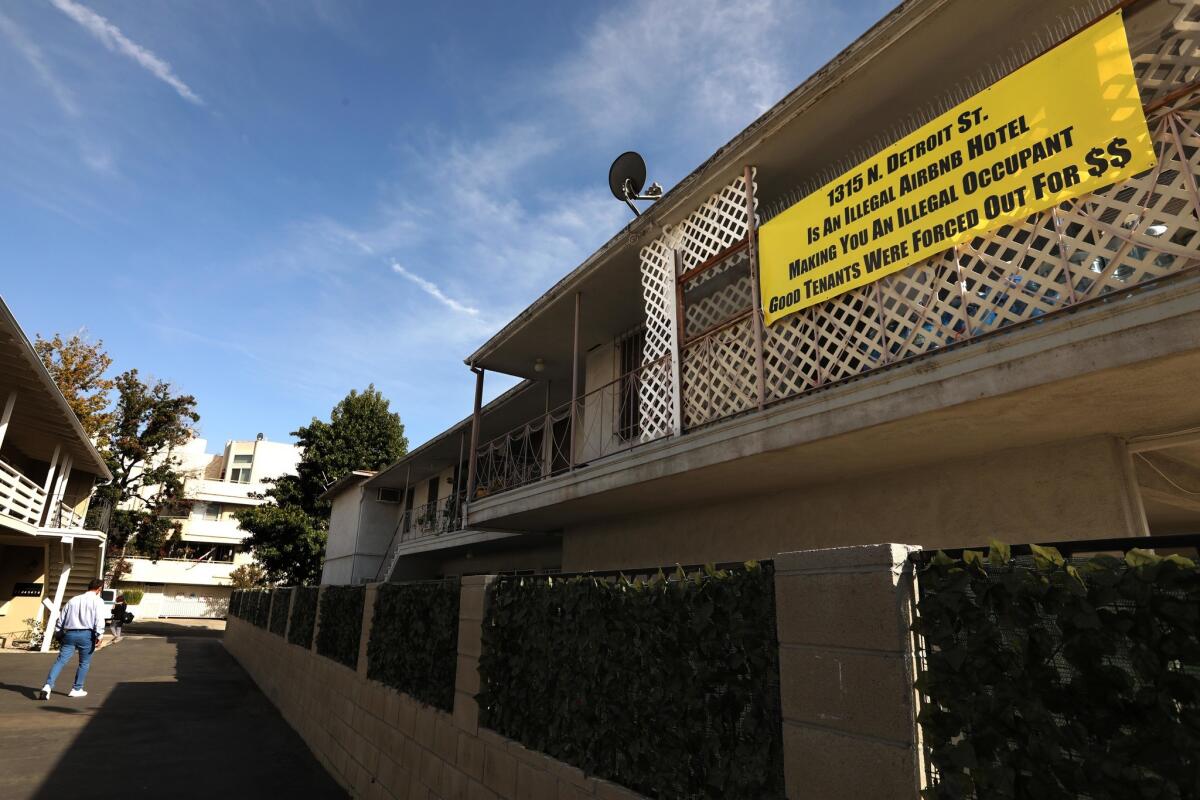
But tenant activists fear landlords could sidestep that rule.
For instance, a landlord could encourage friends or employees to falsely claim they lived in a building, then continue to rent out those apartments to travelers for profit, said Bill Przylucki, executive director of the community organizing group People Organized for Westside Renewal.
“You create a dummy lease,” Przylucki said. “It’s incredibly hard to stop a landlord who is willing to use shady techniques.”
Planning officials say they will demand at least two documents to prove a host lives where he or she claims, but have voiced concerns about whether they will have adequate staffing to detect and crack down on fraud.
As it stands, the city has struggled to stop apartments from being rented out for short stays.
At the Ellison, a brick building steps from Venice beach, more than a dozen current and former residents have sued Lance Jay Robbins, who represents the owner, accusing him of trying to empty the building of rent-controlled tenants to make more money off night-to-night guests.
Frustration over nightly rentals in Venice
The building is advertised online as the Ellison Suites, with rooms going for roughly $200 a night. Renters there say they have grown aggravated with a constant stream of travelers wheeling in luggage, noisy shows with fire dancing and free beer in the courtyard, neglected repairs and other nuisances, according to their lawsuit. Fewer than a dozen households remain.
“We’re the front-line troops in this war on affordable housing,” said Bruce Kijewski, whose rent is roughly $1,700 a month.
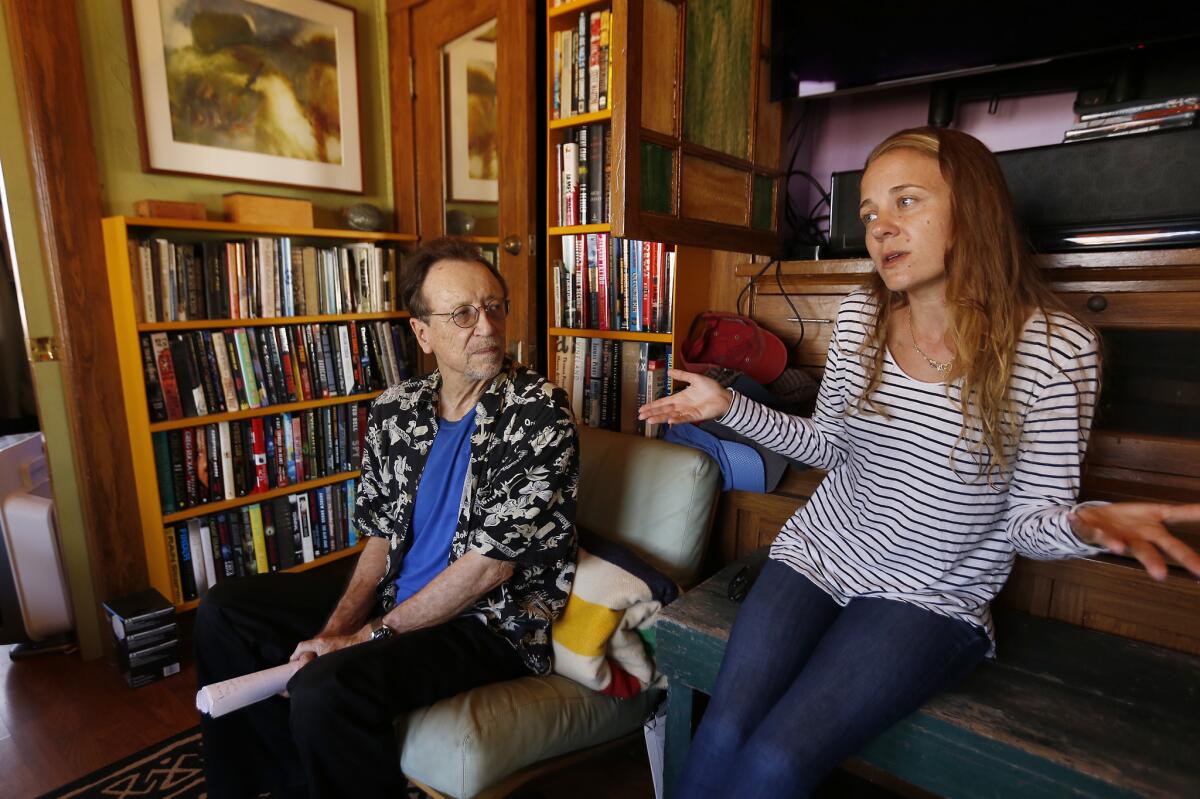
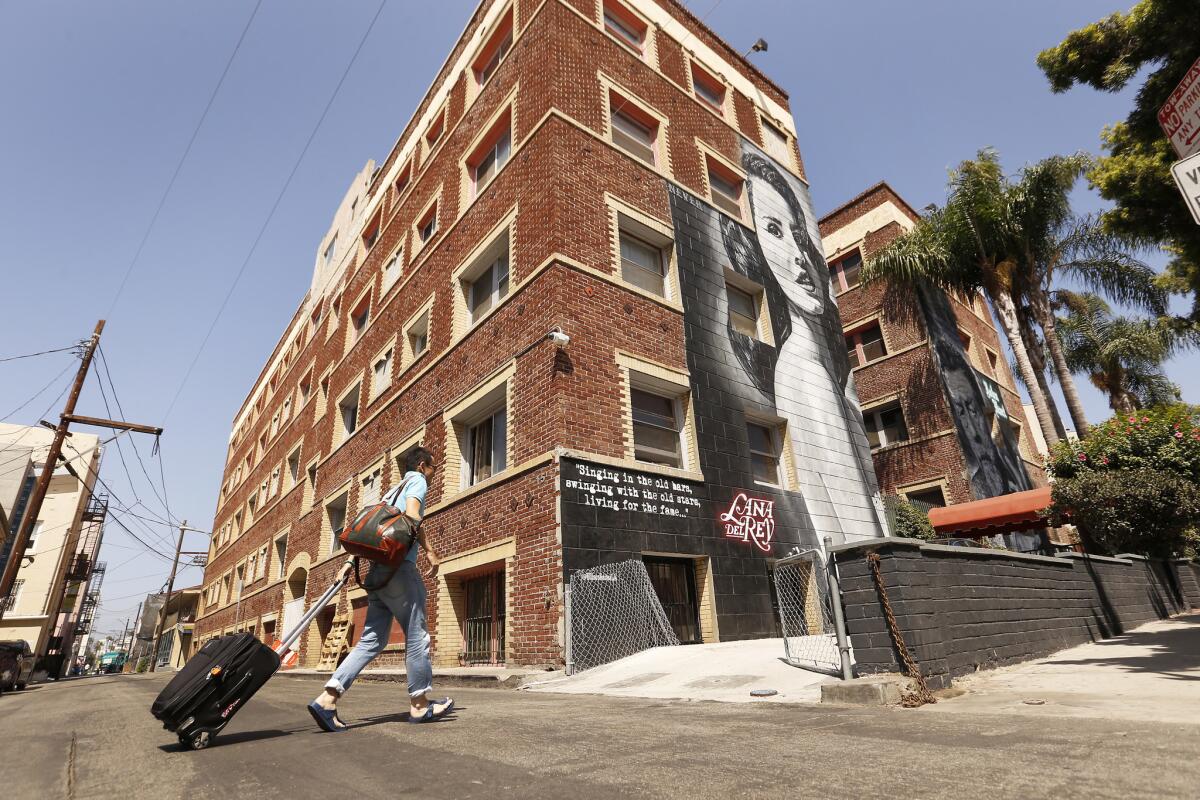
Housing officials ordered a halt to such rentals there 3½ years ago, but the Ellison owner fought back, lodging appeals and suing the city. In the latest appeal, attorney Thomas Nitti argued that the building had historically been rented out for short stays and pointed to a court ruling that found there was nothing in L.A. city codes to bar such rentals in apartment buildings.
Robbins denied claims of nuisances and said that if they were really trying to get rid of tenants, they could simply evict them under a state law for landlords leaving the rental business.
“We haven’t done anything wrong,” Robbins said.
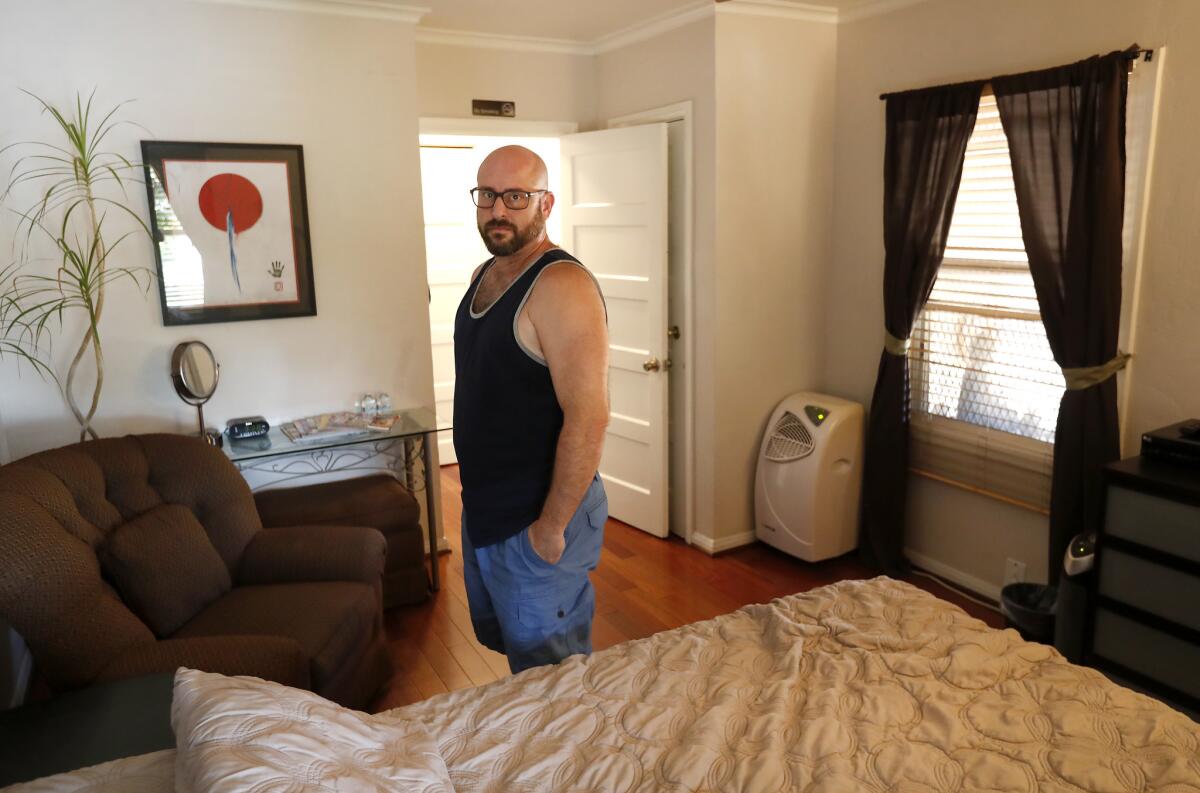
Bonin has pointed to the Ellison as an example of the risk of allowing such rentals in buildings covered by rent control. But Airbnb hosts like Marc Bochner counter that the city should specifically target “corporate players” and leave them alone.
Bochner, who owns a rent-controlled Westlake triplex and lives in one of the units, said that renting out his spare bedroom to Airbnb guests has allowed him to minimize rent hikes for tenants in the other two apartments and kept him afloat after his restaurant went under. Banning him from doing that would do nothing to help the housing crisis, he argued, since his spare room isn’t suitable for a permanent tenant.
Instead, Bochner argued, “the hotel lobby is anxious to get rid of us because we cut into their business model.”
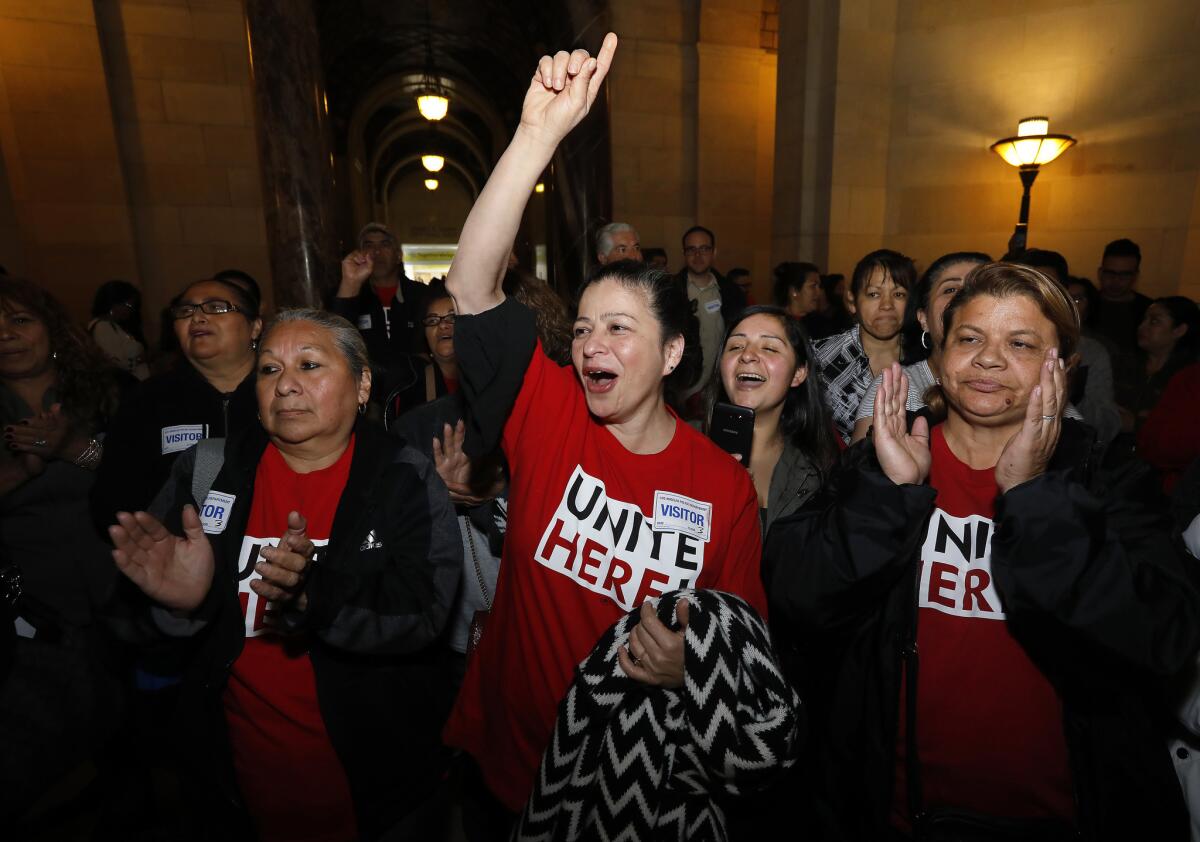
It is unclear exactly how much Airbnb critics have spent lobbying at City Hall because some groups, including the Los Angeles Alliance for a New Economy, do not break down how much is spent on each issue.
However, the total spent by hotel industry groups and the Keep Neighborhoods First coalition exceeds $580,000 over four years, according to city disclosures.
Airbnb, in turn, has reported spending more than $1.2 million lobbying the city over the regulations in the last four years.
In a rarity, Los Angeles strips building from rent control, leaving tenants facing big increases »
Twitter: @AlpertReyes
More to Read
Sign up for Essential California
The most important California stories and recommendations in your inbox every morning.
You may occasionally receive promotional content from the Los Angeles Times.











